
Judit Pogány
Nascimento : 1944-09-10, Kaposvár, Hungary
História
Pogány Judit (Kaposvár, 1944. szeptember 10. –) Kossuth-díjas és Jászai Mari-díjas magyar színművésznő, érdemes művész, a Halhatatlanok Társulatának örökös tagja.
Kora gyermekéveit – bátyjával együtt - Kaposváron töltötte. 8 és fél éves korában elveszítette édesapját, ekkor édesanyja már súlyos beteg volt. Testvérével együtt gyámszülőkhöz került Budapestre, akik két édes gyermekük mellett kitanították és felnevelték őket. Pici gyerekkora óta vonzódott a színház, a versek világához, a Békéscsabán eltöltött középiskolás évei alatt számtalan helyi és országos szavalóversenyen sikerrel indult.
A közgazdasági technikum elvégzése után jelentkezett a Színház- és Filmművészeti Főiskolára, ahol az első rostán eltanácsolták. Nyilatkozataiban említette, hogy igazat ad a felvételiztető vizsgabizottságnak, jelentéktelen kislányként közhelyes versekkel próbálkozott.
Érettségi után visszaköltözött Kaposvárra, és másfél évig a Kaposvári Megyei Bíróságon adminisztrátorként dolgozott. Munka mellett Takács László segédrendező amatőr színjátszókörében játszott el néhány szerepet. 1965-ben a csoport fellépett az országos Ki mit tud?-on, és bekerült a döntőbe. Produkciójukat a kaposvári Csiky Gergely Színház vezetése is látta, készülő új előadásukba fiatal lányokat kerestek, melybe Pogány Juditot is meghívták. Meghallgatás után segédszínészi állást ajánlottak számára, melyet rögtön elfogadott.
Először a kórus és tánckar tagja volt, később kisebb prózai szerepeket játszott. Ebben az időszakban ismerkedett meg későbbi férjével, Koltai Róbert színművésszel, aki ekkor már a színház oszlopos tagja volt. Az igazi áttörést színészi pályájában az 1968-1969-es évad hozta el, amikor Zsámbéki Gábor friss diplomás rendezőként Kaposvárra szerződött, és szerepet adott Pogány Juditnak a Várj míg sötét lesz című színdarabban.
A következő, 1969-1970-es évadtól elindult színházi karrierje: Csorba István rendezésében a Hamupipőke címszerepét alakította, és még ebben az évadban megkapta a színész minősítést.
1971-ben összeházasodott Koltai Róberttel, a következő évben, 1972-ben megszületett fiúk, Koltai Gábor.
1973-tól Ascher Tamás rendezésében a Pinokkió főszerepét játszotta, melyre szülés után napi több órás intenzív edzéssel készült a színésznő, hogy hitelesen keltse életre a szikár fabábu lényét és mozgását. Számtalan szereppel bízták meg a kaposvári évek alatt, többek között Shakespeare Ahogy tetszik című drámájában Rosalindát, Csehov Ivanovjában Anna Petrovnát alakította, mindkettőt Zsámbéki Gábor rendezésében. Sarkadi Imre Oszlopos Simeonjában Zsuzsit, a megalázott, gyilkos nőt keltette életre, a darabot Gazdag Gyula rendezte. Érett, kiforrott művésszé fejlődött, az új rendező generáció legnagyobbjaival dolgozott együtt a kaposvári évek alatt, mint például: Babarczy László, Ascher Tamás, Zsámbéki Gábor.
Elismert filmrendezőkkel forgatott, mint Gazdag Gyula, akinek filmjeiből több tudható meg a Kádár-rendszer valóságáról, mint néhány átfogó szociológiai munkából. A Bástyasétány 74' című filmet 1974-ben mutatják be, melyben Pogány Judit Bözsi szerepét alakítja. Lugossy Lászlóval 1975-ben forgatta az Azonosítás című filmet, mely a következő évben a Berlini Nemzetközi Filmfesztiválon Ezüst Medve-díjat nyert.
1978-ban - 34 évesen - színészi munkáját Jászai Mari-díjjal ismerték el.
Forrás: Wikipédia

Anci mama
After his grandfather falls victim to an elaborate scam, the life of a young man is turned upside down.

mesélő
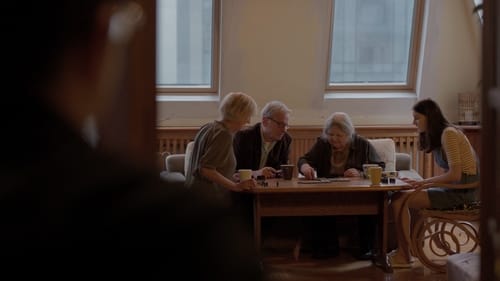
Nagymama

Valika
Gergő’s mother is obsessed with having a grandchild. She has a serious heart disease and has only days left to live. To give his mum some joy during her final hours, Gergő asks his neighbour Saci, who is five months pregnant, to visit his mother in hospital with him and tell her that she is carrying his child. It all goes smoothly, but a new heart arrives, and his mum is operated. Therefore, Gergő and Saci are forced to play the roles of the loving couple.

Annuska néni
Entre 1993 e 1999, um homem roubou 29 instituições financeiras em Budapeste. Bancos, correios e até mesmo agências de viagens foram vítimas de sua onda de crimes. A polícia não tinha pistas e nenhuma esperança de encontrá-lo durante seu período de seis anos. A única pista deixada nas cenas do crime era o aroma distinto do uísque. A mídia batizou-o de “Bandido de Whisky”. Nunca machucando fisicamente ninguém, muitos começaram a seguir avidamente suas escapadas através da mídia. Um imigrante da Transilvânia, que também era goleiro de uma das maiores equipes de hóquei da cidade, chamado Attila Ambrus, foi finalmente identificado como o “Bandido de Whisky”. A polícia finalmente o capturou ... ou assim eles pensaram.

mesélő

Feleség
An elderly couple in the traffic. The wife chitchats, warns, controls. She is a policeman, a GPS and a commentator, all at once. The husband growls or strikes out. This is how their world works. But life is a constant replanning...

Jolika

mesélő
Bogyó a csigafiú és Babóca a katicalány 13 új kalandja.

mesélő
Nice tale for childrens

Vilma
The title of this Hungarian comedy is a German pun on "room for rent" (Zimmer Feri). Near-broke and desperate, Hungarian entrepreneur Feri decides to put a sleazy spin on tourism. After leasing a Lake Balaton boarding house, he moves in his gang -- wife, nephew, daughter, and the daughter's boyfriend -- and then sets out to scam unsuspecting German tourists. Written and directed by Peter Timor (Dollybirds). This film is also known as Feri's Gang. ~ Bhob Stewart, Rovi
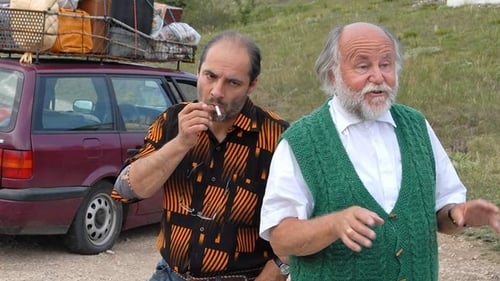
nagymama
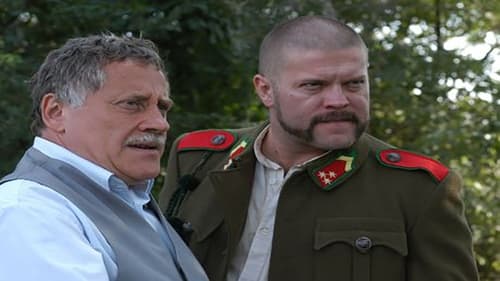
Mrs. Bajusz
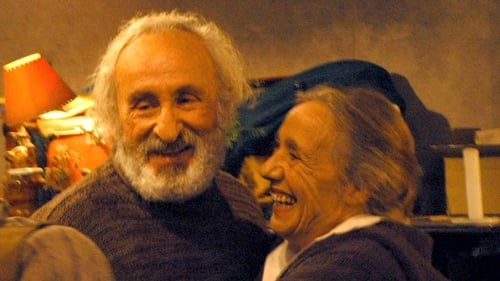
Csibike - ügyvédnő
After her husband's death, Hanna Szendroy, the former primadonna, portrayed by Maya Komorowska is caught in the claws of the real estate mafia. She looses her lavish home and ends up homeless at the Keleti train station. When she returns to her house, now full of homeless people moved in by the real estate mafia, an unexpected relationship brings hope into her life again.

Luvnya
After a woman dies, the devil allows her to relive a 2 minute period over and over in order to escape her fate.

Kamilla

Piroska néni, igazgatónő
A new socialistic city is being built on the Danube's riverbank in the early 50's. The story is about a teacher who's living there.

Kovácsné, Vera anyja
János is a 35 years old, rich, succesful single man, who plans to go on a long vacation with his brand new car.
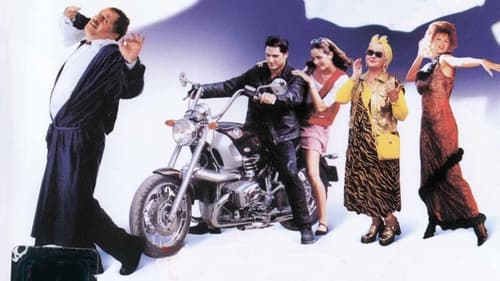
Mrs. Schneider
Mr. Schneider became wealthy after the end of the communism, but still remained a simple man. Her wife although wants a lackey.

Mimike

Vilma
The 50 years old Ferenc rents an apartment on the Balaton beach, but it has a lot of debt on it. His plan is to make it profitable.
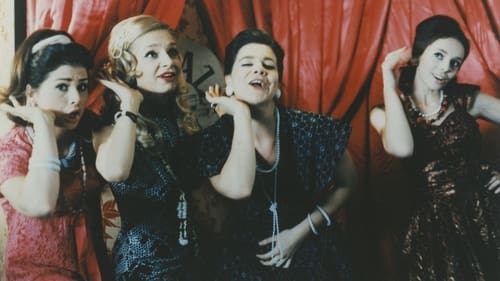
Terike
The movie is set in the actual "Ki Mit Tud?" talent contest in 1962. In reality the contest in dance music category was won by an army brass band. "Omega" which later became one of the most successful Hungarian rock bands came out in the second place.

Budapest, 1948. Gyula Molnár, interpreter to the Supervisory Committee of the Allied Powers, is carried away from a party by plain-cloth police investigators. Recsk, 1950. Molnár, having attempted an escape and with a wound made by a bullet in his neck - is doggedly trying to get into the brigade of brick-layers, as escape is easiest from there.

Lidi
This story shows the two different parts of acting. The father is a strong, ambitious and inconsiderate actor but his son (Tibor) is a sensitive one. This all takes part somewhere in Hungary when socialism "controlled" the country.
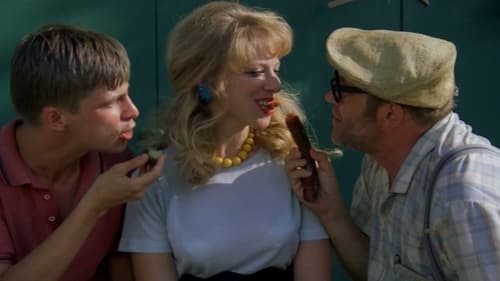
Anya
This story has a horse-race fan main character who sells clothes-hangers On one trip, a young, teenager boy relative goes with him. They have a lot of adventures as they become friends. Girls, dance and horse-racing are the themes while they sell the clothes-hangers this summer...

Overállos nõ
In this grim story, three murders of young girls are committed in a similar manner, and their bodies are all found in the woods. The only suspect, a young man assumed to be a paedophile, commits suicide during the investigation. A policeman becomes obsessed with solving the mystery of this serial killer and he continues to investigate even after he has been taken off the case.
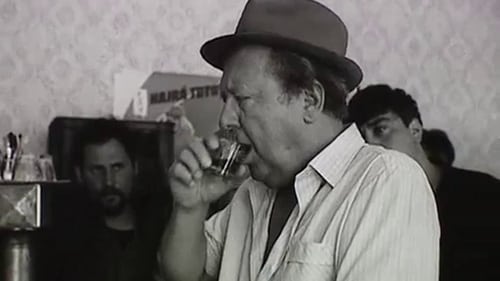
Rozi
In the small village of Rátót, every male is called Béla. When a woman gives birth to her child, she names him Józsi...

In a border town two sons of the local commander using stolen arms take hostages of eighteen girls in a dormitory, because they want to go West by plane.
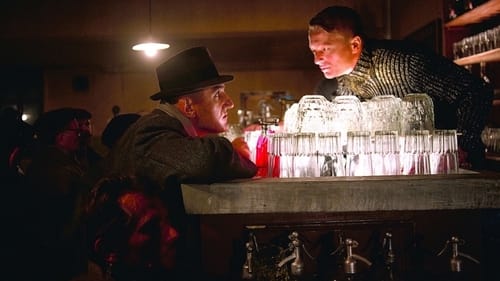
Monoriné
A deep drama about life in Hungary after the WW2 until the revolt against Russians in '56. The main character is the head of the black market in Budapest. He thinks he can buy everyone and everything but at the end he must face that he can't buy life. A must-see for everyone. Casting involves some of the greatest Hungarian actors. The story takes place in the eighth district of Budapest focusing on the market place on Teleki square which is still working. The movie contains some archive footage of real fight during the revolution.

On a single day the fate of three couples are joined and some of them sealed.

Szaffi (voice)
Szaffi is a full-length animated feature based on Jokai Mor's books Gypsy Baron (Cyganibaro) and Szaffi. It has adventure, and treasure, and love, and a little black cat, and a war, and picturesque villains - a governor with a pressure release valve in his skull and a fat pig-loving baron, and of course, the good gypsies.

Gizella
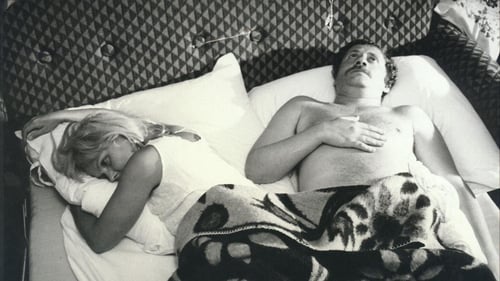
Feleség
Using verite conventions, a young couple with a baby and a child are worn away by the monotony of their lives.
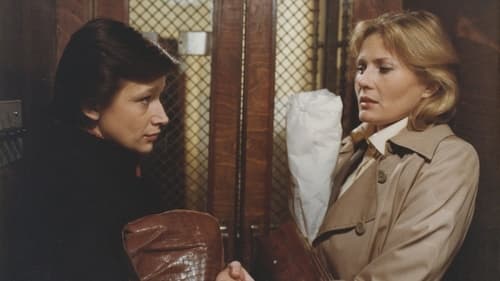
Magda
Political and sexual repression in Hungary, just after the revolution of 1956. In 1958, the body of Eva Szalanczky, a political journalist, is discovered near the border. Her friend Livia is in hospital with a broken neck; Livia's husband, Donci, is under arrest. In a flashback to the year before, we see what leads up to the tragedy. Eva gets a job as a writer. She meets Livia and is attracted to her. Livia feels much the same, but as a married woman, has doubts and hesitations. In their work, they (and Eva in particular) bang up against the limits of telling political truths; in private, they confront the limits of living out sexual and emotional truth.

Vuk (as kid)
A tale about a little fox Vuk from the novel of the famous Hungarian writer István Fekete.

The general practitioner Balla and his wife abandoning her higher education begin their common life in the small mountain village in the hope of quick enrichment and return to the capital. Despite Éva and Emma, the two school mistresses longing for love and Demeter, the dove-keeper obsessed with a desire for flight life is boring in the country.

Anna, Petõ felesége
Irén and Attila, a not-so-young couple, are in love. All they want is a flat of their own where they could live together. Unfortunately, Hungary in the 70s is no place for dreams.

Basztiánné

Hungary in the 1930s. The world suddenly changes around the peaceful office-clerk and regular, average petit-burgeois Kornél Cassius. Friends and relatives turn up in his home, who soon establish themselves there and even take the upper hand. They continue to arrive in increasing numbers, and turn the well-known objects and patterns of relationships upside down.


Vöröskeresztes nõ
While awaiting his release from the Soviet detention camp he is being held in, a half-starved refugee (Andras Ambrus) finds that an error has been made and his name is not on the to-be-released list. It is then that he is forced to assume the identity of a dead man whose name is on the list. Ambrus at first refuses, but because he was an orphan and cannot produce evidence of his true identity, he has no other choice. However, when he returns to the outer world and the community he was raised in, he is greeted with suspicion. When he tries to claim his part-ownership of a farm from his adopted uncle, he is refused and beaten by farmhands the uncle sets on him.

Mr. Dezső and Rezső are selecting the heroes for their new operetta. They represent different tastes and styles, and keep arguing about the casting of the four boys and four girls.

























